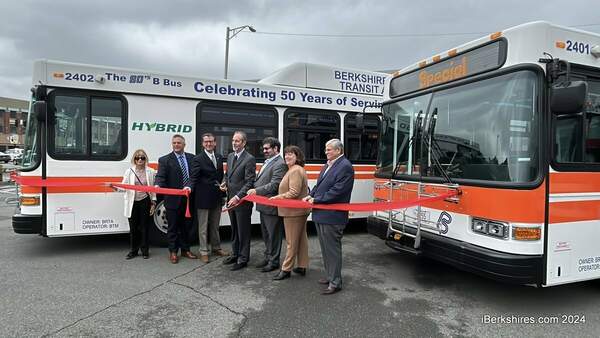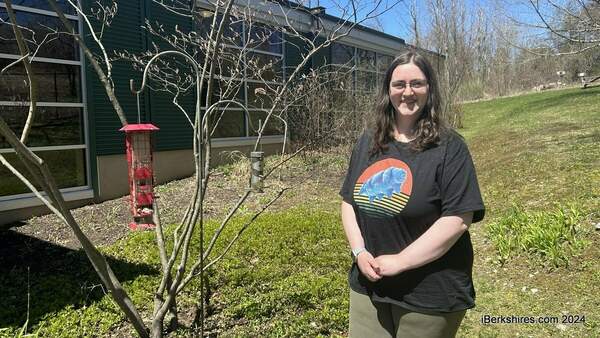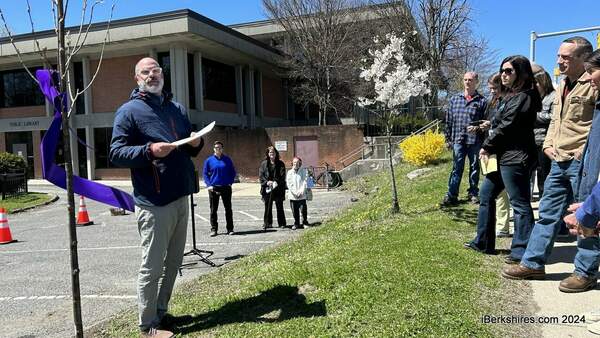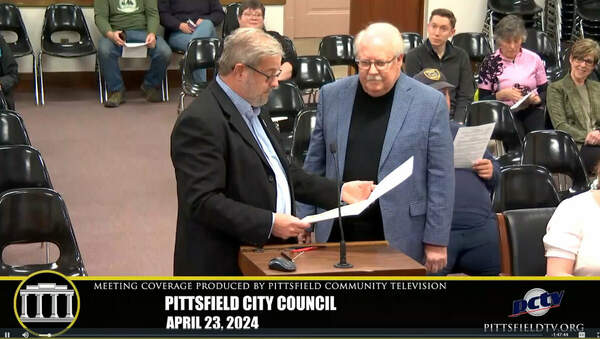Pittsfield Council OKs Bilingual Pay Increase, Diversity Ambassador Program
PITTSFIELD, Mass. — An increase in bilingual proficiency compensation and a diversity, equity, and inclusion ambassador program was approved during last week's City Council meeting — but not without debate.
The council voted to amend the bilingual proficiency ordinance by $50, as city employees have seen a great need for translation services while communicating with residents.
The proposed increase would compensate an extra $175 a month for oral or reading/written fluency and $225 a month for oral and written fluency. Originally approved in 2020, the ordinance offered an extra $125 a month for either oral or reading/written fluency, or $175 for both oral and written fluency.
Councilor at Large Karen Kalinowsky questioned the parameters of proficiency, advocating that people who are fluent or native to the language should be paid more than someone who can translate conversationally, and Ward 2 Councilor Charles Kronick argued that is it a part of the job and does not warrant a bonus.
"If it's an office worker who has the skill and they provide extra value to the public that's great," he said. "But that's part of their job and I don't really see it necessary requiring a bonus"
Both voted in opposition. City Clerk Michele Benjamin said her office serves Spanish-speaking residents daily and though her assistant speaks some Spanish, they use Google Translate or call a bilingual employee to assist with conversation.
"When we're having trouble helping them we'll call in one of the three people in this building who are so happy to come translate for us. They're not called away from their office once an hour, I mean, if we call them three or four, times a week, that might be a lot but they're so happy," Benjamin said.
"And when the people who are speaking another language have that person who can translate for them, they are elated."
After doing the math, she reported that it would cost less than $18,000 yearly to provide the eight eligible employees with the stipend, which is much less than a full-time translator would cost.
"I just have to say they're happy when we go to them and we're happy that they can help the residents of the city," she added.
Kalinowsky, speaking from her time as a Pittsfield police officer, pointed out that there is a similar benefit in the union. Though she could speak conversational Spanish, she would have to call in backup for translation if a person started speaking quickly because they were upset.
She reported speaking to non-union employees that felt they should be paid differently if they are more proficient than others.
The ordinance states that participants are required to pass a verbal and/or written bilingual skills exam as a condition of receiving this pay and provide proof of continued proficiency every three years from the original determination of proficiency.
"The reason that I am coming before you for a blanket increase is having that feedback from that staff that there's an added workload, obviously, that comes with this," Human Resources Director Michael Taylor explained.
He said more and more departments are needing translation for various forms and documents and for working with the public.
"I'm not looking to separate any out under this policy," Taylor said. "If they're proficient, they're proficient. If they can translate the document that is in front of me, great."
Ward 6 Councilor Dina Lampiasi was excited to support this, say it makes the city a more equitable employer and provides incentives to retain employees since it is not a high-paying municipality.
Councilor at Large Earl Persip III said the increase was easy for him to support.
"I think it's beneficial for the employee, I think it's beneficial most importantly for the resident who comes in who may not speak English very well or at all," he said.
"And so anytime we can make someone's life a little easier when they come to City Hall. Coming to City Hall, that's stressful enough if English is your first language, never mind if it's your second language."
Councilor at Large Peter White observed that this is an incentive to have the best possible employees working for the city and not to lose them to other companies.
Kronick also voted against the addition of a DEI Ambassador Program to assist the Department of Diversity, Equity, and Inclusion in creating a welcoming and inclusive work environment for all employees.
During last year's budget season, he caused a stir in his opposition to the department and claim that it is not needed.
He was joined by Ward 1 Councilor Kenneth Warren in the vote against. Warren believes that the positions are important but found legal troubles in how the program was established.
The ambassadors are city employees who will serve as a resource for their colleagues and department while being a community builder for peers of underrepresented identities. They will help identify harmful structures and increase knowledge and awareness about inclusive leadership and communication.
Though Kalinowsky voted in favor, she expressed concern for how the ambassadors would be selected, explaining that if a person she was not comfortable confiding in became an ambassador she would not go to them.
"It won't be just me picking anybody. There is a process that you'd have to go through," Chief Diversity Officer Michael Obasohan explained.
"I wanted to pay close attention that the ambassadors are going to be serving our underrepresented minority population of employees. Studies have shown them that representation is important and that the folks usually tend to go to people that look like them, that's what they're most comfortable with."
He said all employees are welcome to apply as an ambassador but it is an added layer if a person can identify with underrepresented people through gender, race, or language.
Persip pointed to past debate on the department.
"I will support this," he said. "Director, maybe one of these times when you bring a program up here, there won't be a problem. There always seems to be a problem when you come up. I'm not sure what it is but you have my support tonight."
Kalinowsky said she did not have a problem, she was just trying to get information and did not want to blindly vote on it.
Tags: DEI, languages,















